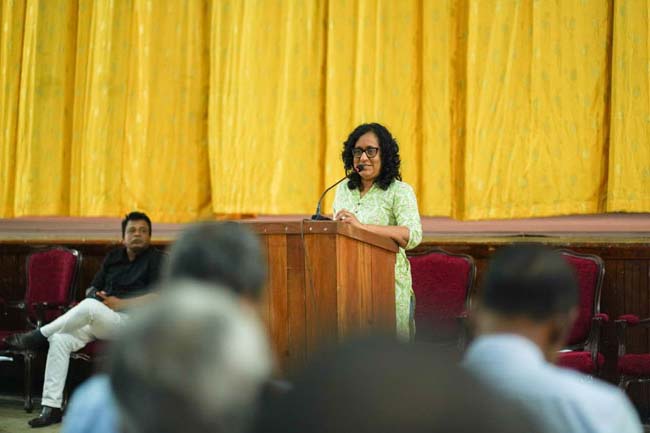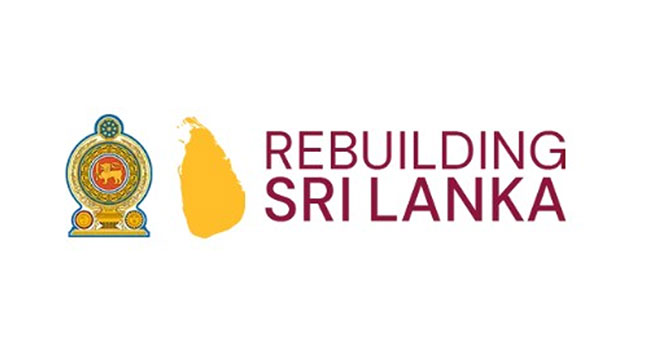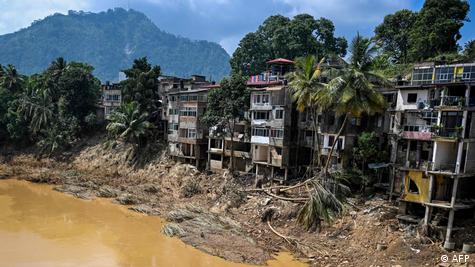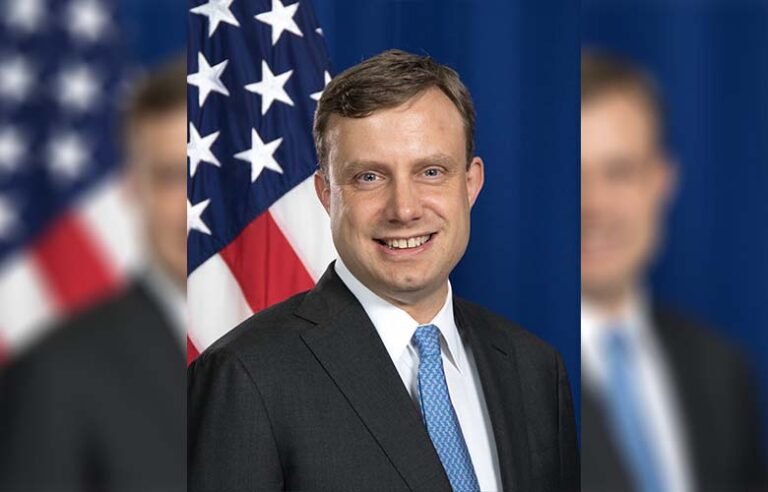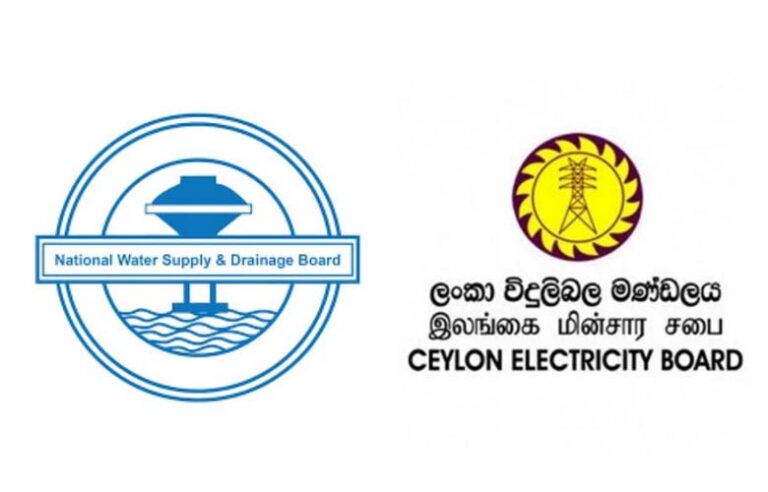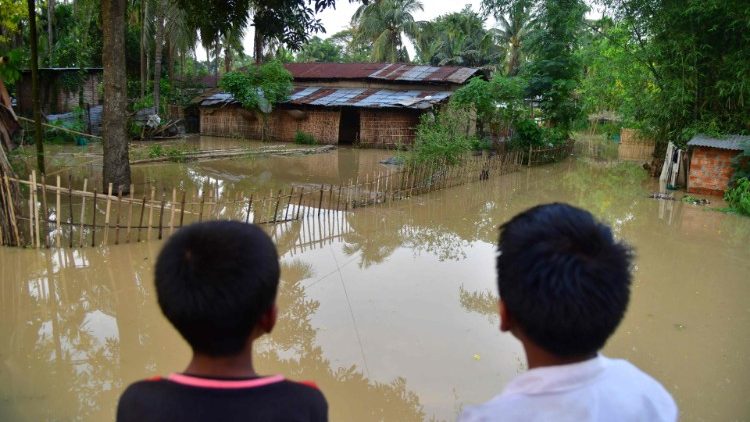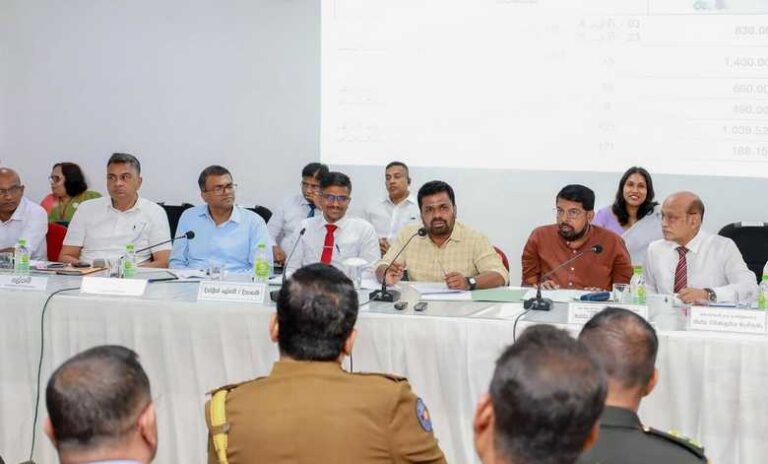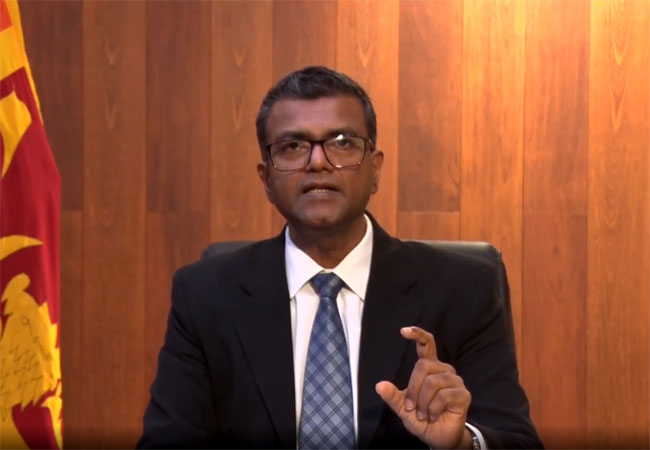December 14, Colombo (LNW): Prime Minister Dr Harini Amarasuriya has stressed that, in the aftermath of the recent disaster, education should not become an added burden on children and that their emotional and psychological well-being must take precedence.
According to a statement from the Prime Minister’s Office, she said this approach is essential to creating a caring and supportive school environment during periods of recovery.
Her remarks were made during a meeting with education officials from the Nuwara Eliya District, focused on restoring learning activities and facilitating the safe reopening of schools.
While the Ministry of Education has announced that schools across the country are scheduled to resume on December 16, the Prime Minister noted that provincial and district authorities have been given the discretion to decide on reopening in areas directly affected by the disaster, based on local conditions.
She emphasised that schools situated in high-risk zones should only reopen after obtaining clearance from the National Building Research Organisation, with particular attention paid to the safety of access roads and surrounding infrastructure.
She also encouraged flexibility for both teachers and students who have faced hardships, including allowing the use of comfortable clothing where appropriate.
During the discussion, district education officials reported that, despite significant challenges, progress in education reforms has continued, with more than half of planned teacher training programmes in the Nuwara Eliya District already completed.
Addressing participants, the Prime Minister highlighted the need for collective effort to overcome current difficulties and rebuild the education system in a way that is stronger and more resilient than before.
The meeting was attended by Deputy Minister of Education and Higher Education Dr Madhura Senevirathna, Members of Parliament representing the district, senior provincial administrators, and other government officials.
Prime Minister Calls for Child-Centred Approach as Schools Prepare to Reopen After Disaster
‘Rebuilding Sri Lanka’ Fund Attracts Contributions Exceeding Rs. 3.4 Bn
December 14, Colombo (LNW): The Government’s ‘Rebuilding Sri Lanka’ Fund, set up to assist communities affected by Cyclone Ditwah, has so far attracted contributions exceeding Rs. 3.4 billion.
The above figure has been disclosed by Dr. Harshana Suriyapperuma, Secretary to the Ministry of Finance, Planning and Economic Development.
He said the fund has received widespread backing from within the country as well as from overseas, with donations coming from prominent business figures, Sri Lankans living abroad and a range of international organisations.
In monetary terms, the total contributions amount to more than Rs. 3,421 million, equivalent to over USD 11 million. Of this, foreign currency inflows account for approximately USD 4.1 million, reflecting strong international engagement.
Dr Suriyapperuma noted that assistance has been received from around 40 countries, with the United States emerging as the single largest contributor. Substantial support has also come from the Sri Lankan diaspora in Australia, alongside donations from countries including the United Kingdom, Germany, Italy, the Maldives, Saudi Arabia, France, South Korea and the United Arab Emirates.
He added that several domestic companies have each pledged more than Rs. 100 million, while a further four sizeable contributions ranging between Rs. 20 million and Rs. 100 million have been made by members of the business community and the public, highlighting broad-based support for national recovery efforts.
Ditwah Catastrophe: National Death Toll Climbs to 643
December 14, Colombo (LNW): The number of fatalities linked to the recent spell of extreme weather has risen to 643, according to the latest update from the Disaster Management Centre.
Authorities also report that 184 people are still unaccounted for, as search and relief operations continue across affected regions.
Unusually intense rain, flooding and related hazards have impacted every one of the country’s 25 districts, disrupting lives on an unprecedented scale. The DMC estimates that more than 1.36 million people, representing over 391,000 families, have been directly affected by the crisis.
Emergency services and relief agencies remain engaged in rescue, recovery and assistance efforts, while officials warn that further challenges may arise as damaged infrastructure and displaced communities continue to be assessed.
Oshini Gunawardena Crowned World’s Top Under-13 Girl Chess Player
December 14, Colombo (LNW): Sri Lanka’s young chess sensation Oshini Gunawardena has climbed to the pinnacle of the global rankings, securing the number one position among Under-13 girls in the latest World Chess Federation (FIDE) listings.
The milestone reflects her consistent performances at international and regional tournaments recorded up to December 01, 2025. With an impressive rating of 2272, Oshini has edged ahead of a strong field of young competitors from leading chess nations.
An Indian player currently occupies the second spot in the category, followed by a rising talent from Kazakhstan in third place. FIDE revises its rankings each month, taking into account recent results and rating changes across youth and senior divisions worldwide.
Oshini’s achievement underscores the steady rise of Sri Lanka on the international chess stage and stands as a testament to her discipline, talent and commitment to excellence at a remarkably young age.
US Ambassadorial Nominee Signals Strong Focus on Maritime Security and Economic Reform in Sri Lanka
December 14, Colombo (LNW): The United States’ nominee to serve as ambassador to Sri Lanka has outlined Washington’s intention to deepen engagement with Colombo through maritime cooperation, economic reform and strategic balance in the Indian Ocean, as the island nation continues to rebuild after years of economic turmoil and recent natural disasters.
Appearing before the US Senate Foreign Relations Committee, nominee Eric Meyer told lawmakers that Sri Lanka’s location along major global sea routes places it at the centre of American strategic interests in the Indo-Pacific.
He said the United States views the country as a key partner in safeguarding freedom of navigation and maintaining regional stability, while also addressing the expanding footprint of rival powers, particularly China.
Meyer highlighted that some of the world’s busiest shipping corridors pass close to Sri Lanka, with a large share of global energy shipments and frequent US naval movements transiting nearby waters. This, he said, gives Sri Lanka heightened importance in efforts to promote open, rules-based maritime access.
If confirmed, Meyer said his immediate priority would be the safety and welfare of American citizens in Sri Lanka. He also pointed to the US response following Cyclone Ditwah earlier this year, noting that Washington had provided emergency funding and logistical support, including military airlift capabilities, to assist relief operations. He described the assistance as a reflection of a durable partnership between the two countries.
Turning to the economy, Meyer said Sri Lanka had demonstrated resilience following its 2022 financial collapse and had the potential to emerge as a regional economic hub. He drew attention to planned expansions at the Port of Colombo, suggesting that increased capacity could significantly boost the country’s role in global trade.
He also stressed the importance of continuing reforms under Sri Lanka’s International Monetary Fund programme, arguing that long-term economic stability strengthens national independence. Sustained reform, he said, would also create conditions for greater American investment and closer commercial ties.
During the hearing, committee chairman Senator Jim Risch referred to China’s involvement in Sri Lanka’s port infrastructure as a cautionary example for other countries. Meyer responded by saying the United States supports transparent and balanced partnerships and would encourage Sri Lanka to assert control over its strategic assets, including ports.
Meyer added that defence and law enforcement collaboration would remain central to bilateral relations, particularly in areas such as disaster response, combating transnational crime, improving maritime surveillance and enhancing port security. He said the US aims to work with Sri Lanka to protect sea lanes, expand trade opportunities and support the country’s growing role in regional security.
Sri Lanka plunged into its worst economic crisis in decades in 2022, marked by debt default, severe shortages and political unrest. Since then, the government has pursued IMF-backed reforms to stabilise the economy, while navigating competing interests from major powers amid rising strategic rivalry in the Indian Ocean.
Essential Services Rebound Post-Ditwah: Utilities and Transport Networks Recover Nationwide
December 14, Colombo (LNW): Authorities say the country’s water supply has now been completely normalised following widespread disruption caused by the recent disasters.
National Water Supply and Drainage Board Chairman Chandana Bandara confirmed that households with damaged water connections will have them repaired at no cost, as part of the Board’s recovery programme. He added that overall losses to the water sector are estimated at around Rs. 5.6 billion.
Progress has also been reported in the power sector. The Ceylon Electricity Board says electricity has been restored to nearly all affected areas, with about 99 per cent of supply now back online. Deputy General Manager Noel Priyantha noted that work is continuing to reconnect roughly 26,000 remaining consumers in parts of the Central and Uva provinces.
All damaged transmission infrastructure has already been fully repaired, he added. At the height of the crisis, an estimated 4.1 million electricity users were left without power.
Transport and health services have likewise seen significant improvements. Commissioner General of Essential Services Prabath Chandrakeerthi said that 292 of the 293 highways damaged during the disaster have been reopened to the public, easing movement across the country. Restoration work has also been completed on 15 of the 42 major bridges affected.
In the health sector, around 90 per cent of the 236 hospitals impacted by the disasters have returned to normal operations, providing much-needed relief to communities as overall recovery efforts continue.
CEB Counts Heavy Losses as Power Supply Largely Restored After Disaster
December 14, Colombo (LNW): The Ceylon Electricity Board (CEB) has reported financial losses close to Rs. 20 billion in the aftermath of the recent disaster, which caused widespread disruption to the national power network.
Deputy General Manager Noel Priyantha said that restoration work had progressed rapidly, with electricity supply now reinstated to about 99 per cent of affected areas. He added that the recovery effort had been carried out under difficult conditions, as many electricity consumers had also lost their homes during the disaster.
Priyantha confirmed that all damaged transmission lines and related infrastructure have now been repaired and brought back into operation, allowing the grid to function normally once again.
The CEB estimates that the disaster triggered roughly 4.1 million power interruptions across the island, highlighting the scale of the impact on both the utility provider and the public.
Despite the significant financial setback, the Board said it remains focused on stabilising the system and supporting communities as recovery efforts continue nationwide.
Authorities Warn Against Sharing Details of Disaster-Affected Children
December 14, Colombo (LNW): The Ministry of Women and Child Affairs has appealed to the public, media organisations and online users to avoid circulating any information relating to children made vulnerable by the recent disaster.
In an official statement, the Ministry cautioned that publishing photographs, video footage or identifying details of affected children on social media platforms or through mainstream media can seriously compromise their privacy, safety and personal dignity.
Officials warned that the release of such sensitive information could place children at heightened risk of abuse, including exploitation and human trafficking, particularly if it reaches criminal networks seeking to prey on vulnerable families.
The Ministry stressed that the protection of children is a legal obligation and confirmed that action will be taken against anyone found to be disclosing or spreading information about at-risk children in violation of child protection laws.
Members of the public were also encouraged to remain vigilant and to promptly report cases involving vulnerable children or any suspected trafficking activities. Reports can be made via the national child helpline on 1929 or through Child Rights Promotion Officers and Child Protection Officers at the nearest Divisional Secretariat.
The Ministry reiterated that safeguarding children during times of crisis requires collective responsibility and careful, ethical conduct from all sectors of society.
President Urges Swift Livelihood Recovery and Compensation for Disaster-Hit Communities
December 14, Colombo (LNW): President Anura Kumara Dissanayake has directed state officials to place the restoration of livelihoods at the forefront of post-disaster recovery efforts, stressing the need for speed, fairness and effective coordination across all sectors.
Addressing a special meeting of the District Coordinating Committee at the Puttalam District Secretariat, the President called for urgent action to compensate affected families and to rapidly revive agriculture, fisheries and local industries. He instructed that all compensation related to crop losses must be fully paid out by December 25.
Describing the recent cyclone as one of the most severe disasters to affect the country in recent years, President Dissanayake praised the armed forces, the Police and public servants for their efforts in stabilising affected areas. He noted that essential services such as electricity, water supply and road networks had already been largely restored due to their commitment.
The President also underscored that the Government’s capacity to extend substantial financial assistance was the result of disciplined fiscal management. At the same time, he acknowledged challenges in the distribution of relief and instructed Divisional Secretaries to ensure that payments are made strictly to eligible recipients, warning against any misuse or deviation from established guidelines.
Infrastructure rehabilitation featured prominently in the discussions, with particular attention given to damaged highways and bridges. The President reviewed obstacles faced during reconstruction and offered immediate solutions in consultation with officials.
He also directed that a temporary structure be erected at the Lower Kala Oya crossing to support tourism until permanent construction is completed, stressing that all projects must be guided by proper technical assessments and real economic need.
Turning to utilities, the President urged authorities to complete the restoration of electricity and water supplies without delay, noting that current well-cleaning efforts in some areas remain inadequate.
On agriculture, he sought updates on preparations for the upcoming Maha cultivation season, calling for swift measures to support farmers, reduce abandoned land and promote alternative methods to maximise productivity.
He reiterated that compensation to farmers must be paid before December 25, regardless of land classification, while also insisting on strict controls to prevent cultivation in protected areas. Soil conservation, particularly in regions such as Kalpitiya, was highlighted as a priority.
The livestock sector was also addressed, with the President calling for equitable compensation and improved data collection. He stressed the importance of registering all livestock farms through new legislative measures to strengthen long-term resilience.
Housing damage in the district was reported to be extensive, with hundreds of homes destroyed and many more partially damaged. The President ordered fast-tracked compensation and prioritised resettlement on state land. Where this is not possible, affected families are to receive Rs. 5 million to secure alternative land, while those who lost homes entirely will be provided with new houses valued at the same amount.
Support for the fisheries sector, including assistance to repair damaged boats and access to fair compensation and concessional loans for prawn farmers, was also discussed. The President further reviewed the status of Chilaw Hospital and was informed that several units are expected to resume normal operations by next week.
The meeting was attended by ministers, deputy ministers, provincial and district officials, Members of Parliament from the area, senior public servants, and representatives of the security forces, reflecting a coordinated approach to recovery and rebuilding efforts in the district.
Treasury Releases Over Rs. 13 Billion for Disaster Relief: Finance Secretary
December 14, Colombo (LNW): The Treasury has already released in excess of Rs. 13 billion to support communities affected by the ongoing disaster situation, according to the Secretary to the Ministry of Finance, Planning and Economic Development, Dr Harshana Suriyapperuma.
In a special statement, Dr Suriyapperuma said efforts are under way to improve transparency and speed in sharing information on incoming funds and their allocation. He stressed that strengthening communication around the scale and timing of financial assistance remains a key priority.
He explained that all monetary assistance currently received by the country is being channelled through the Treasury, which then distributes the funds using established institutional mechanisms. These include close coordination with Divisional Secretariats to ensure assistance reaches affected areas efficiently.
The Finance Secretary confirmed that total disbursements have now exceeded Rs. 13 billion, with funds released following presidential proposals that were subsequently endorsed by Parliament through supplementary budget approvals.
He added that steps are being taken to accelerate data collection and information-sharing processes so that both material aid and financial contributions received by Sri Lanka can be delivered to individuals and communities without delay. The overall focus, he noted, is on ensuring timely, accountable and effective relief for those most in need.

